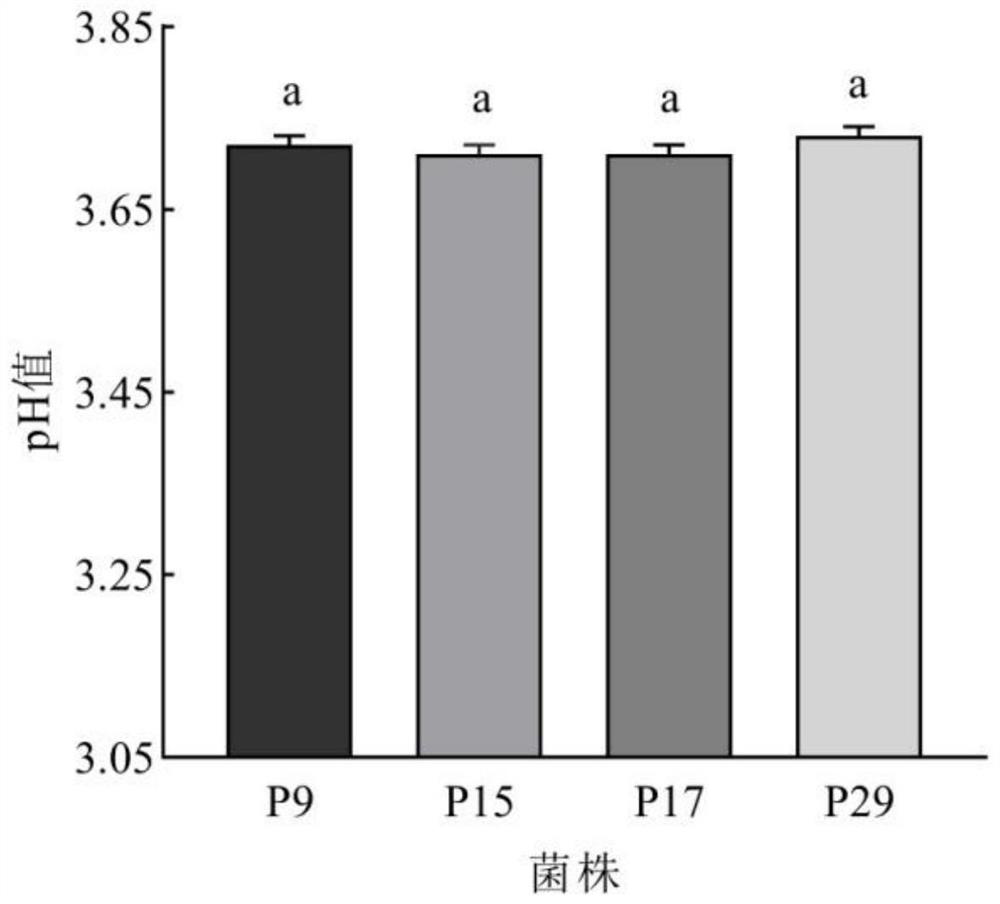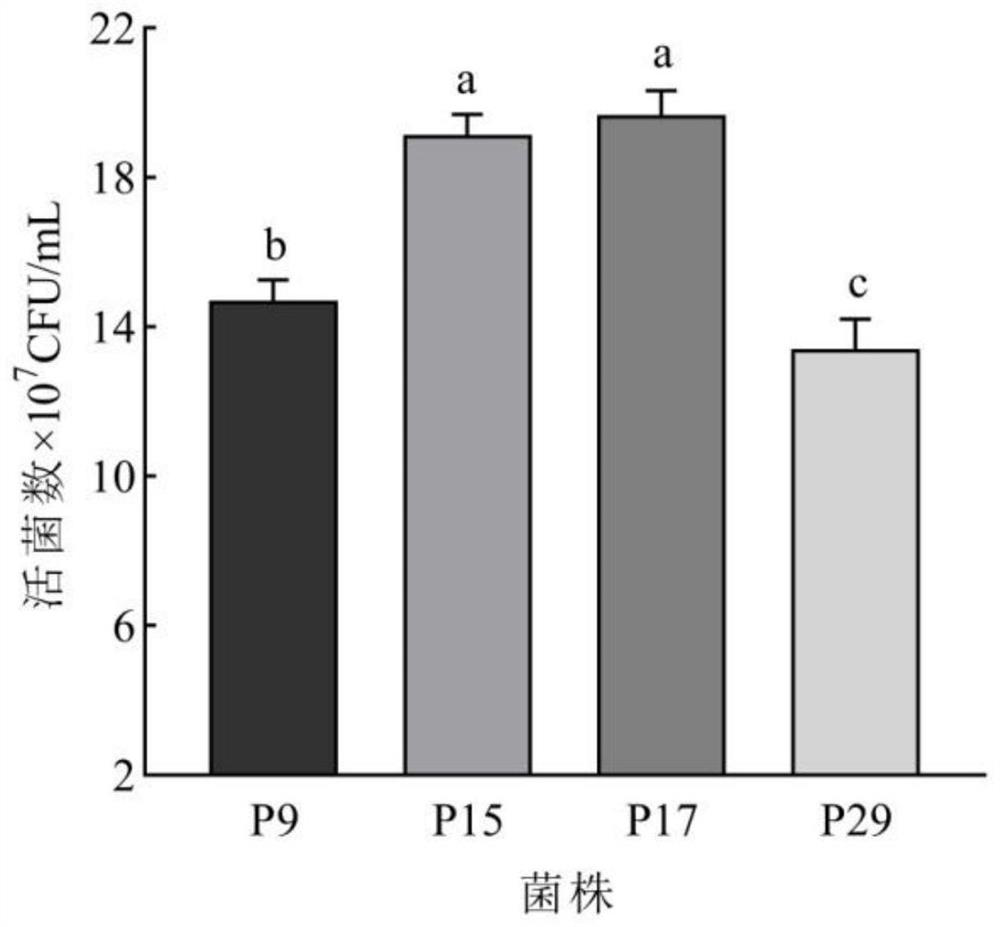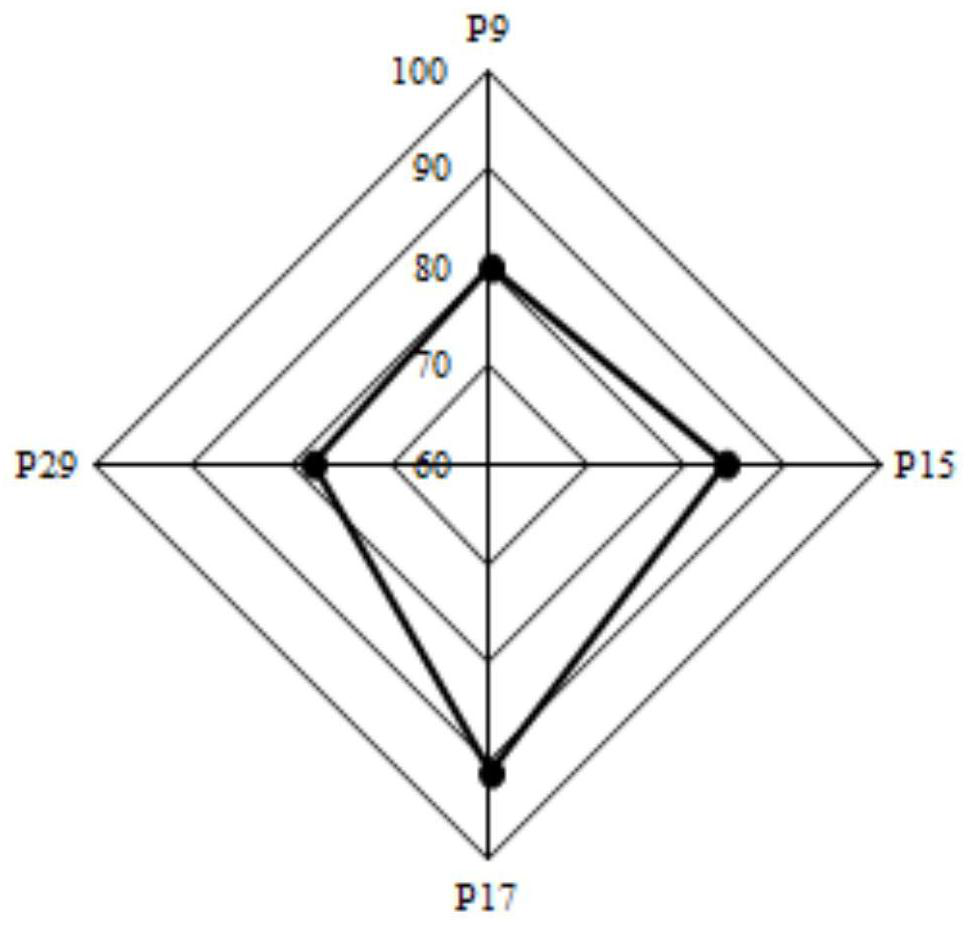Lactobacillus plantarum p-17 and method for preparing fermented apple juice using the same
A technology of Lactobacillus plantarum and apple juice, applied in the direction of microorganism-based methods, biochemical equipment and methods, Lactobacillus, etc., can solve the problem of high acidity of the product, achieve an increase in antioxidant value, simple production methods, and easy-to-obtain raw material sources Effect
- Summary
- Abstract
- Description
- Claims
- Application Information
AI Technical Summary
Problems solved by technology
Method used
Image
Examples
Embodiment 1
[0036] Example 1 Screening excellent lactic acid bacteria
[0037] (1) Isolation of lactic acid bacteria
[0038] The wine samples during the post-fermentation period were selected, and the strains were isolated by the direct plate separation method. Streak purification was performed on strains that met Gram positive, contact enzyme negative and skim milk curd tests.
[0039] (2) Tolerance comparison of isolated strains
[0040] Using the number of viable bacteria as an indicator, and using Lac450 as a control strain for most wineries, the tolerance to pH, osmotic pressure and temperature of the strains isolated from the post-fermentation period of wine was investigated, so as to screen out the strains with stronger comprehensive tolerance. strains.
[0041] After the isolated strains were activated, 10 7 CFU / mL were respectively inoculated into MRS liquid medium with different pH values (4.0, 3.5, 3.0) and different sugar concentrations (20, 40, 60%) and cultured at 30 ...
Embodiment 2
[0082] Embodiment 2 Lactobacillus plantarum P_17 suitable growth condition and growth curve
[0083] (1) Determination of suitable growth temperature
[0084] The changes of viable bacteria of Lactobacillus plantarum P_17 after culturing for 24h under different temperature conditions are shown in Figure 7 . Depend on Figure 7 It can be seen that low temperature has an inhibitory effect on the growth of Lactobacillus plantarum P_17. Between 17 and 37 °C, the density of bacteria increases rapidly with the increase of temperature. The amount of bacteria showed a downward trend. The test showed that 37℃ was the suitable growth temperature of Lactobacillus plantarum P_17.
[0085] (2) Determination of suitable growth pH
[0086] The changes of viable bacteria of Lactobacillus plantarum P_17 after culturing for 24h under different pH values are shown in Figure 8 . Depend on Figure 8 It can be seen that the lower pH value has a significant inhibitory effect on the growth...
Embodiment 3
[0089] Example 3 In vitro simulation of artificial gastrointestinal digestion by Lactobacillus plantarum P_17
[0090] (1) Tolerance study on artificial gastric juice
[0091] Probiotics must travel through the harsh stomach environment to reach the gut in order to be effective. Food stays in the human gastric juice environment for 1 to 3 hours, and the pH value of human gastric juice is about 3.0 on average. Therefore, probiotics must be resistant to gastric juice in order to exert their functions in the human body. After the lactic acid bacteria were exposed to the artificial gastric juice with pH value of 3.0 for 3 hours, the number of viable bacteria and the survival rate were shown in Table 7.
[0092] Table 7 Test results of tolerance of lactic acid bacteria to artificial gastric juice
[0093]
[0094] It can be seen from Table 7 that after Lactobacillus plantarum P_17 acts in artificial gastric juice with pH value of 3.0 for 3h, the number of viable bacteria is (...
PUM
 Login to View More
Login to View More Abstract
Description
Claims
Application Information
 Login to View More
Login to View More - R&D
- Intellectual Property
- Life Sciences
- Materials
- Tech Scout
- Unparalleled Data Quality
- Higher Quality Content
- 60% Fewer Hallucinations
Browse by: Latest US Patents, China's latest patents, Technical Efficacy Thesaurus, Application Domain, Technology Topic, Popular Technical Reports.
© 2025 PatSnap. All rights reserved.Legal|Privacy policy|Modern Slavery Act Transparency Statement|Sitemap|About US| Contact US: help@patsnap.com



